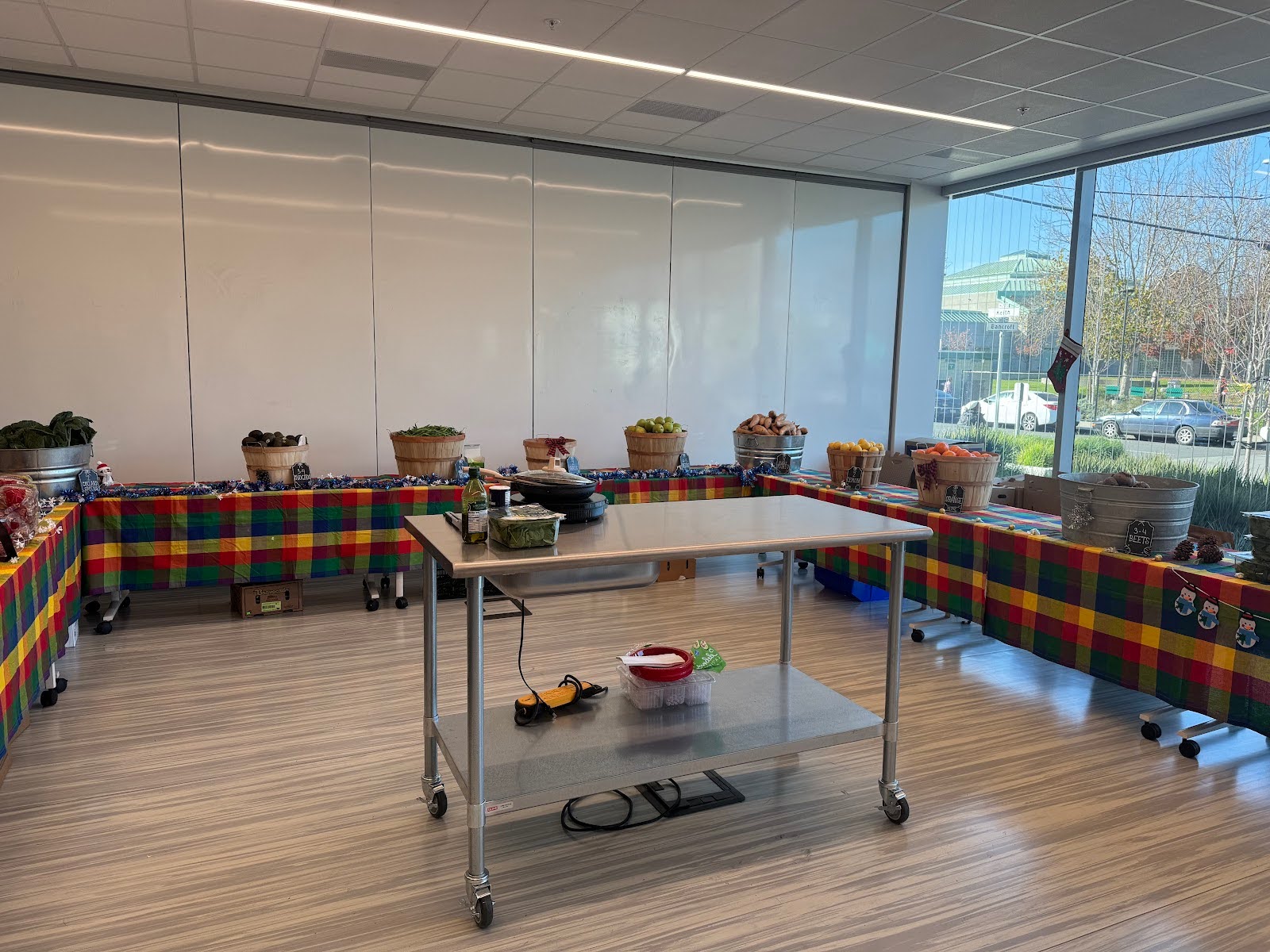Food Pharmacy: A Love of Food and Conversation
My name is Jennifer, and I serve as the Food Access Coordinator for the Food as Medicine Collaborative (FAMC) at the San Francisco Health Network Clinics (SFHN). I grew up in the Bay Area and went to school in Southern California. I am so happy to be back after exploring the rest of California. Before pursuing graduate school, I joined NHC SF to experience the city I fell in love with and to learn more about public health in the Bay Area. I wanted to know how nonprofits can play a role in medicine and how patients' voices and lives can be centered on everyday conversations.
Food Pharmacy is a program run by various clinics across the city, including, but not limited to, UCSF, San Francisco Community Clinic Consortium, and SFHN. Food Pharmacy, an initiative started by the Food as Medicine Collaborative, provides patients with culturally relevant, healthy, whole foods weekly while connecting them with their clinical team.
I currently serve at two primary care SFHN clinics. At these two clinics, a small group of patients come in for 12 weeks to be a part of the Food Pharmacy to address chronic conditions like hypertension and diabetes. For our cohort model, our days can start as early as 8 AM and end around 4 PM. Our mornings include receiving food orders, setting up a farmers' market-style room, making spa water, and preparing food demonstrations for the day's recipe. When the Food Pharmacy starts, patients talk to their peers and the clinic staff before their nutrition education presentation and food demonstration start. Some days, we do group exercises, and on other days, we learn about nutrition labels. The day ends with conversations about patients’ experiences at their clinics, advice about food, questions about their diet and chronic conditions, and check-ins about how their week has been.

As the weeks pass, conversations between staff and patients evolve, starting with questions about nutrition and food, but slowly becoming stories about the foods they grew up with and their family and friends. These conversations are sparked by food demonstrations where patients can talk, question, and appreciate the different ways you can cook produce. A clinic nutritionist leads food demonstrations, showing the process of cooking a specific recipe or spotlighting produce to patients and providing them with a sample. These food demonstrations showcase various recipes specifically tailored to the patient population we are serving, making sure they are culturally relevant while also including new ingredients to encourage patients to try new things. These demonstrations allow patients to discuss their opinions and advice on the sample. Some patients want to add different spices, while others realize they might start including the produce in their diet.
These conversations lead to more casual and personal conversations about food. As we spend more time with our patients at food pharmacies, family events, favorite recipes, cooking methods, and disdain for certain root vegetables slowly become topics of conversation. Patients share photos of the Thanksgiving dinner they cooked for their families, showcasing their fan-favorite cakes and how they used some of the produce they received the week prior. Patients advise other patients who are curious about how to use produce they have never tried before and even ask about the different organizations they are a part of outside of Food Pharmacy. Patients stick around after Food Pharmacy to talk about their lives with clinic staff and interns, too.
Food being a topic of conversation breaks the ice for clinic staff and patients. Looking at patients’ photos of home-cooked meals, talking to patients about food, and learning about the act of cooking for a family has reminded me of my own love of food. Food is a way to show love, always having my favorite noodles packed in my bag for lunch or receiving homemade frozen baos after visiting home for busy days in the city. At the same time, food is an excuse to have a conversation. Mealtimes and phone calls are filled with questions about the day, tomorrow, and how the food tastes. Food is a means of connection, and I am grateful to be reminded to slow down, talk, and enjoy food with the patients I am serving.